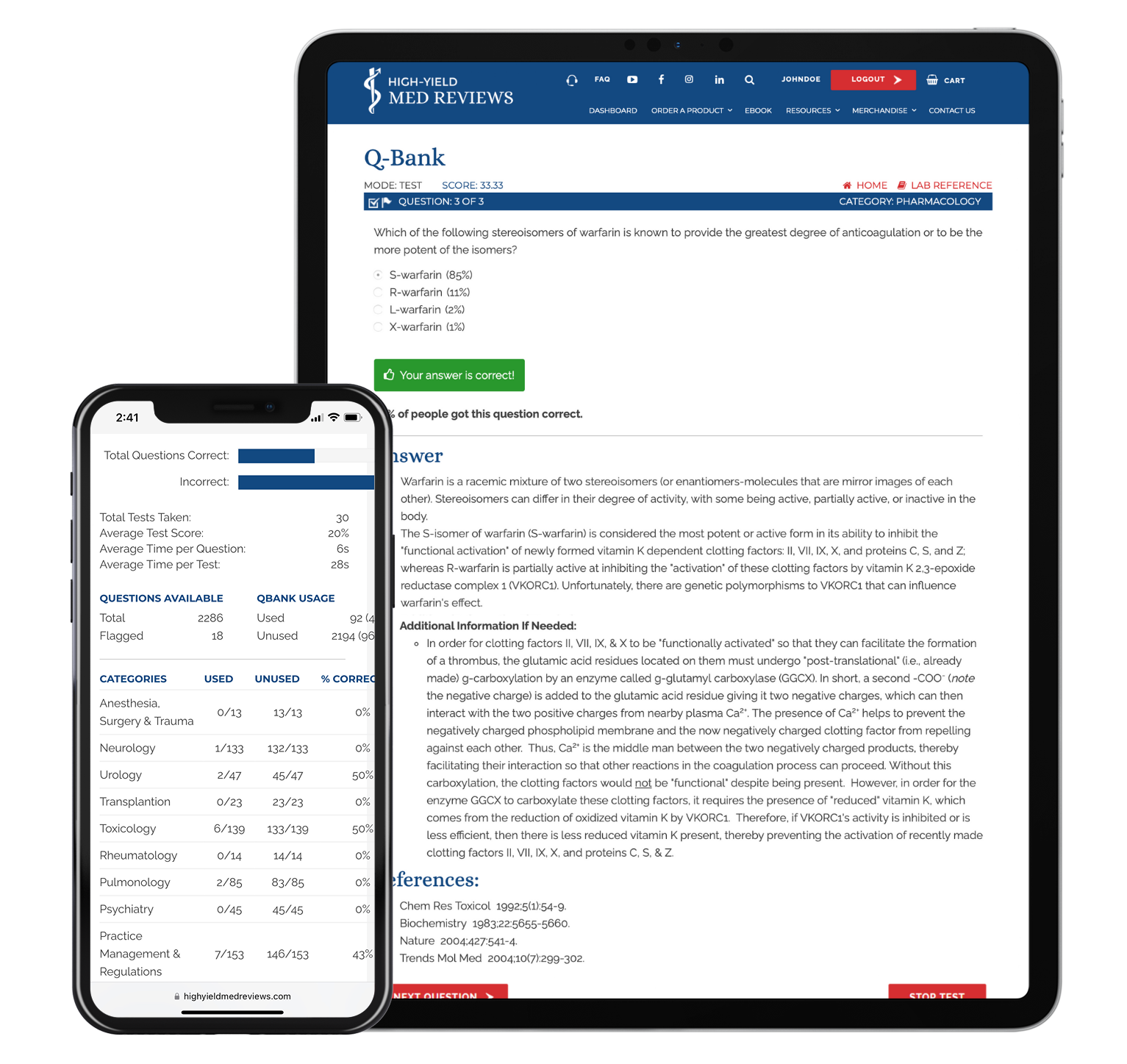The Best Way to Prepare
for a multiple choice exam
Is by practicing exam questions
✓ Questions align with exam blueprints
✓ rationales, clinical pearls & teaching points
✓ written by expert faculty & clinical pharmacists



A 45-year-old woman is newly diagnosed with type 2 diabetes mellitus. Her initial evaluation shows: BP 128/72 mmHg, BMI 33 kg/m², A1c 8.7%, eGFR >60 mL/min/1.73m², and urine albumin-to-creatinine ratio (UACR) 18 mg/g. She has no established ASCVD, heart failure, or chronic kidney disease. What is the most appropriate initial pharmacologic treatment?
A 56-year-old female presents to your clinic with the following fasting laboratory test results: total cholesterol 218 mg/dL, triglycerides 153 mg/dL, HDL 51 mg/dL, LDL 139 mg/dL, and A1c 5.9%. She does not take any prescription medications. She follows a heart healthy diet, does not use tobacco products and does not drink alcohol. Her atherosclerotic cardiovascular disease (ASCVD) risk score is 2.3%. Her liver and kidney function are within normal limits. Which of the following is the best recommendation for this patient?
A study was completed and revealed a p-value between the two treatment groups to be p = 0.01. Assuming an alpha = 0.05, which of the following offers the best interpretation of this p-value?